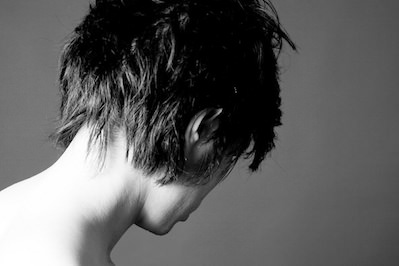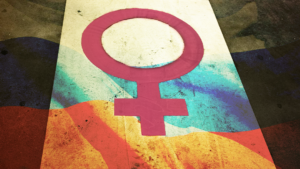On Nerd Pain
In response to a vulnerable personal comment on "nerd trauma and male privilege" published by MIT professor Scott Aaronson, New Statesman editor and columnist Laurie Penny wrote a compassionate and highly desirable essay on the experiences of pain, frustration and loneliness common to both nerdy males and females in general. Photo by See-Ming Lee (CC BY-SA 2.0)
Photo by See-Ming Lee (CC BY-SA 2.0)
Photo by See-Ming Lee (CC BY-SA 2.0)
In response to a vulnerable personal comment on “nerd trauma and male privilege” published by MIT professor Scott Aaronson, New Statesman contributing editor and columnist Laurie Penny wrote a compassionate and highly desirable essay on the experiences of pain, frustration and loneliness common to both nerdy males and females in general.
Aaronson is a feminist, Penny reports, but not entirely. He describes in his post how mathematics helped him escape what she describes as “the misery of growing up in a culture of toxic masculinity and extreme isolation”:
Much as I try to understand other people’s perspectives, the first reference to my ‘male privilege’ — my privilege! — is approximately where I get off the train, because it’s so alien to my actual lived experience . . . I suspect the thought that being a nerdy male might not make me ‘privileged’ — that it might even have put me into one of society’s least privileged classes — is completely alien to your way of seeing things. I spent my formative years — basically, from the age of 12 until my mid-20s — feeling not ‘entitled’, not ‘privileged’, but terrified.
“I know them feels, Scott,” Penny responded on Dec. 29:
As a child and a teenager, I was shy, and nerdy, and had crippling anxiety. I was very clever and desperate for a boyfriend or, failing that, a fuck. I would have done anything for one of the boys I fancied to see me not as a sad little boffin freak but as a desirable creature, just for a second. I hated myself and had suicidal thoughts. I was extremely lonely, and felt ugly and unloveable. Eventually I developed severe anorexia and nearly died.
Like Aaronson, I was terrified of making my desires known- to anyone. I was not aware of any of my (substantial) privilege for one second – I was in hell, for goodness’ sake, and 14 to boot. Unlike Aaronson, I was also female, so when I tried to pull myself out of that hell into a life of the mind, I found sexism standing in my way. I am still punished every day by men who believe that I do not deserve my work as a writer and scholar. Some escape it’s turned out to be.
I do not intend for a moment to minimise Aaronson’s suffering. Having been a lonely, anxious, horny young person who hated herself and was bullied I can categorically say that it is an awful place to be. I have seen responses to nerd anti-feminism along the lines of “being bullied at school doesn’t make you oppressed”. Maybe it’s not a vector of oppression in the same way, but it’s not nothing. It burns. It takes a long time to heal. Feminism, however, is not to blame for making life hell for “shy, nerdy men”. Patriarchy is to blame for that. It is a real shame that Aaronson picked up Andrea Dworkin rather than any of the many feminist theorists and writers who manage to combine raw rage with refusal to resort to sexual shame as an instructive tool. Weaponised shame – male, female or other – has no place in any feminism I subscribe to. Ironically, Aronson actually writes a lot like Dworkin – he writes from pain felt and relived and wrenched from the intimate core of himself, and because of that his writing is powerfully honest, but also flawed. The thing is that the after effects of trauma tend to hang around long after the stimulus is past.
Penny’s essay is beautiful and important because she’s trying to establish common ground between people who are separated by culture and gender, and who thus struggle to coexist peacefully and joyfully. Aaronson himself called it “a response that others [sic] of Penny’s views should study, if they want to understand how to win hearts and change minds.”
Read the rest here.
— Posted by Alexander Reed Kelly.
Your support matters…Independent journalism is under threat and overshadowed by heavily funded mainstream media.
You can help level the playing field. Become a member.
Your tax-deductible contribution keeps us digging beneath the headlines to give you thought-provoking, investigative reporting and analysis that unearths what's really happening- without compromise.
Give today to support our courageous, independent journalists.






You need to be a supporter to comment.
There are currently no responses to this article.
Be the first to respond.